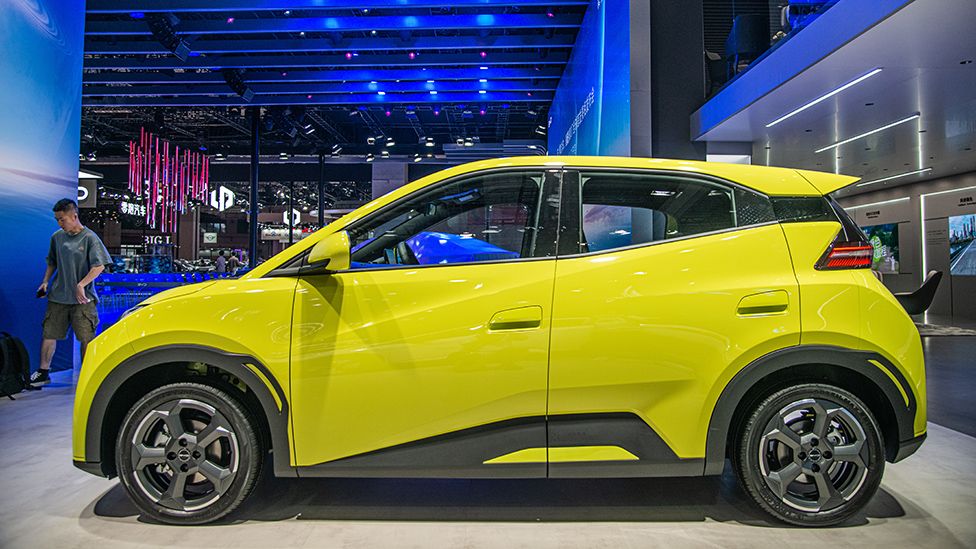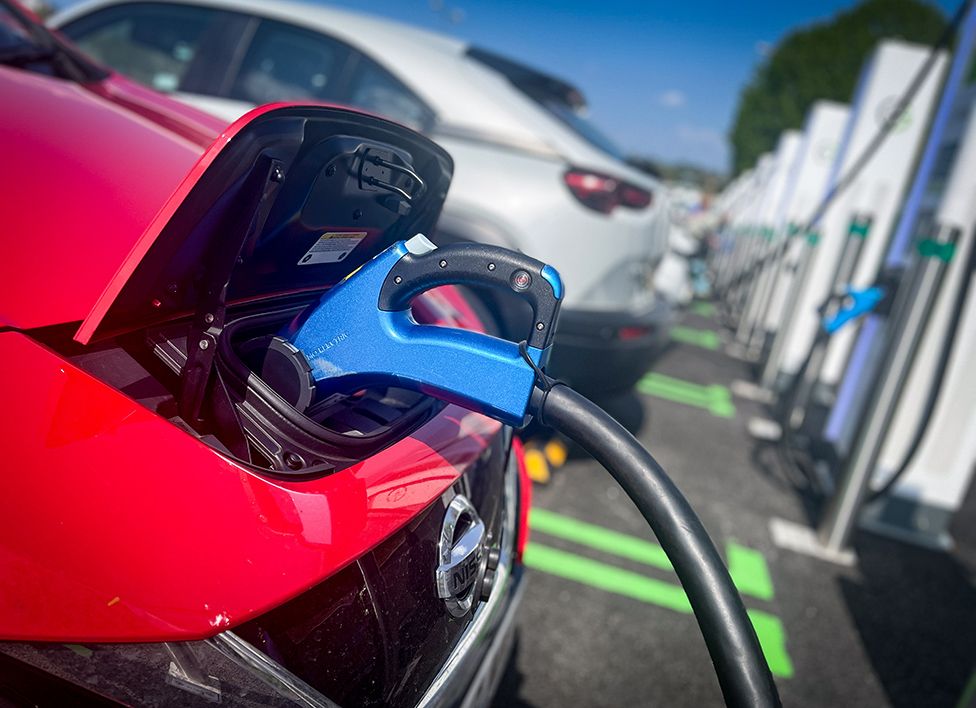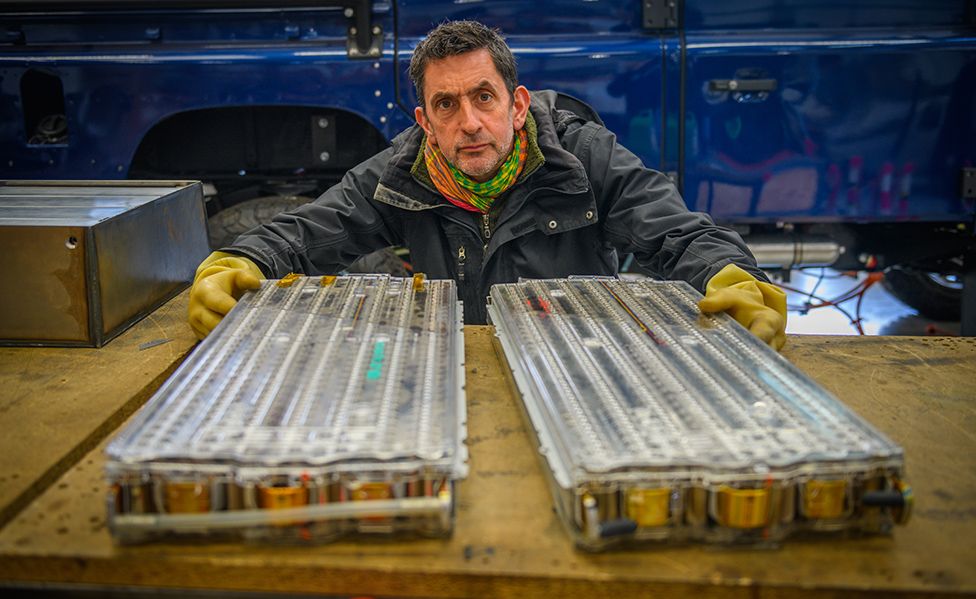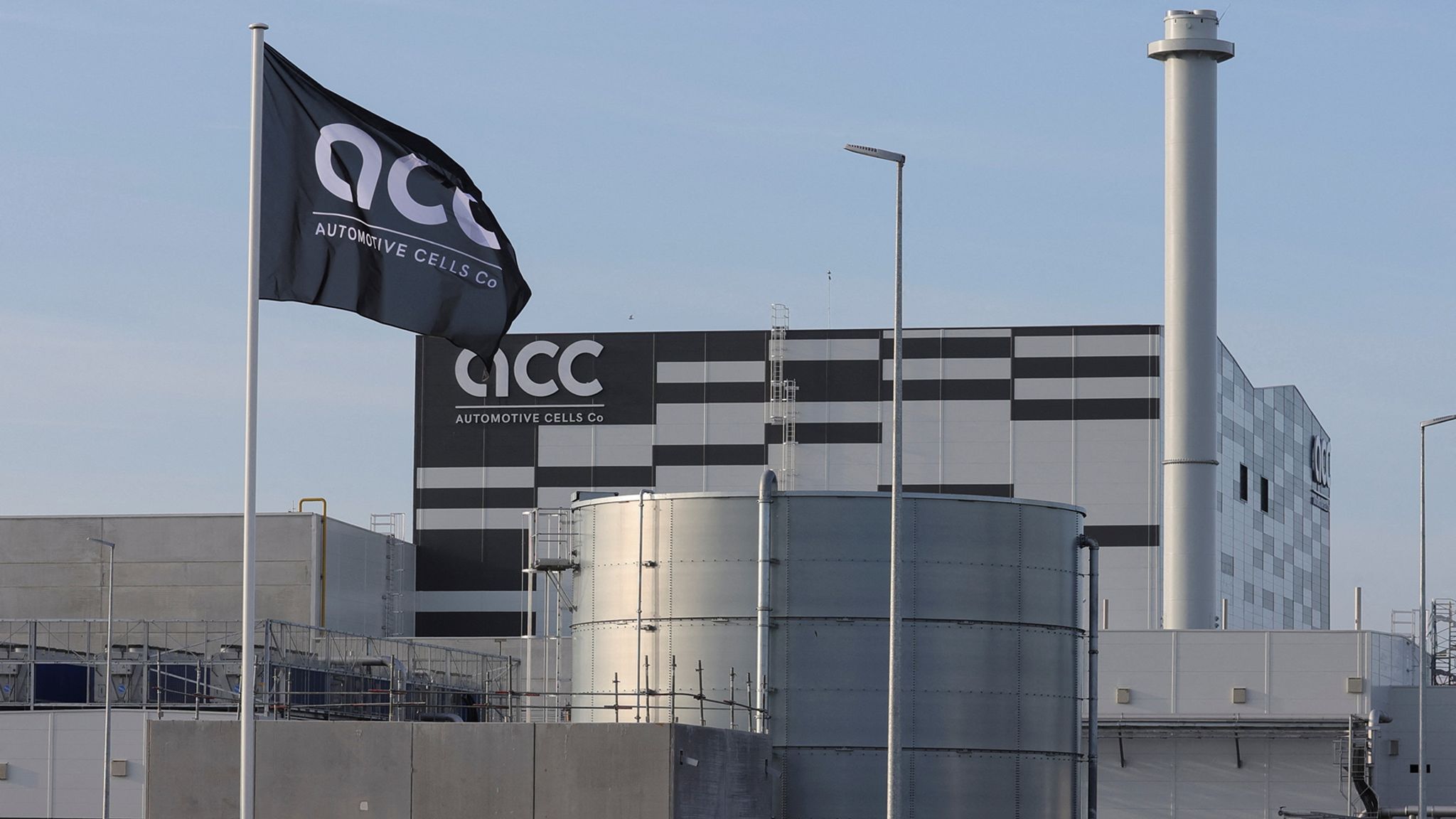

The future is electric for the cars on our roads, but is the UK ready for such a major change?
At the risk of infuriating all you petrolheads out there, let’s just get it out there – electric cars are the future.
They are clean, quiet, fun to drive and help us tackle the biggest challenge of our era, climate change.
But there are some big bumps along the road to the UK’s electric destiny.
There is pressure on both the Conservatives and Labour to review their climate commitments following the Tories’ surprise win in the Uxbridge by-election – where the upcoming extension of London’s Ultra Low Emission Zone was one of the big issues.
So, can we meet the target?
Electric cars are selling fast, but are not without controversy. Justin Rowlatt, the BBC’s climate editor, explores if the UK is on track to hit the government’s targets to stop emitting greenhouse gases by 2050.

Let’s start with the price, because EVs are still very expensive.
The cheapest EV on sale in the UK with a decent range will set you back north of £30,000.
That’s significantly more than an equivalent petrol or diesel car.
However, there are much cheaper electric cars in the pipeline.
The talk of the Shanghai Motor Show in April wasn’t some new sports car but a super-cheap new EV called the Seagull.
Manufactured by BYD, the Chinese battery and car behemoth, the basic Seagull has a 190-mile range and a list price in China of 78,000 yuan (£8,400).

It will be a while before you can buy one, though. The company currently has no plans to sell the Seagull in the UK.
The world is racing to get a piece of the electric car market and the minerals – lithium, nickel, cobalt – packed into EV batteries are currently in short supply.
That makes them expensive, and it is likely to be some time before new mineral supplies become more widely available.
Meanwhile, the UK government has stopped offering grants to help EV buyers.
Apart from the cost, the other main reasons people give for not going electric are fears about range and charging.
And, with a growing market like EVs, perceptions are as important as reality.
If people believe electric cars are unreliable that is a huge problem.
When Times columnist Giles Coren wrote about how his expensive electric car died during a family holiday it became his most commented-on article.
He described how his wife and children had to “strike out on foot across the fields in the driving rain and gathering darkness” while the car was “a lifeless corpse blocking the single-track road”.
Surveys suggest that most owners are actually broadly satisfied with their electric cars.
Range is becoming less of a problem as many new EVs can go 200 miles on a single charge and often much more, but how and where to charge the batteries remains a big issue.
You might have seen warnings that there are more than 30 electric car owners “fighting over” every public charge point.
However, almost two thirds of electric car owners have off-street parking and will rarely ever use public chargers.
With 200 miles-plus “in the tank” every morning, most people find they don’t often need to top up.
But according to the RAC Foundation, 35% of people in Great Britain don’t have off-street parking (a figure rising to 55% in London), and virtually all car owners will want to make longer journeys sometimes.
So, installing more public chargers – particularly rapid chargers, which can charge a car from 0% to 80% in about 30 minutes – is crucial.
One reason the ratio of chargers to EVs is low is that electric cars have been selling so well. They made up 16.6% of new car registrations in 2022 – up from 0.4% in 2016.
But it is also taking time to roll out charging infrastructure.
As of June this year, there were 44,408 charging points across the UK, 8,680 of which were rapid chargers.

The government has set a target of 300,000 public charging stations (of all speeds) by 2030, although the Society of Motor Manufacturers and Traders (SMMT) has called for 2.3 million to meet demand from motorists.
The number of chargers being installed in the UK is rising each month – in June, 1,677 were installed in public places.
But unless the government ups its game, it’s still likely to be more than 100,000 short of its 2030 target.
It says it can catch up, but admits that annual installations will have to more than double by 2025.
In 2022, the government also said it wanted at least six rapid chargers in every motorway service area in England by the end of this year.
However, in May the RAC said that this was unlikely to be achieved at the current rate of progress.
In the meantime, the British car industry is grappling with an even bigger problem – by 2030 it isn’t going to have a market in the UK any more unless it goes electric.
 Justin Rowlatt with lithium ion batteries
Justin Rowlatt with lithium ion batteriesThat should concern us all because car manufacturing is an important industry in the UK.
About 780,000 people are employed in jobs connected with it – and it contributes an estimated £14bn a year to the economy.
The US, China and the EU are all investing billions of pounds to encourage electric vehicle manufacturing.
“The investment on offer elsewhere in the world, is quite frankly, incredibly attractive,” says Emma Butcher of the SMMT.
“It does make companies think twice about when they come to make their investment decisions,” she warns.
The big issue is battery production, the single most valuable part of an electric vehicle.
China has more than 100 production plants – known as gigafactories.
About 50 planned gigafactories have been announced in the EU.
It’s been reported that France has offered 1.5bn euros of loans to help build four new gigafactories there.

Germany already has six but is said to be offering 1bn euros in loans to a company to build more.
The UK has only one, in Sunderland – and it is relatively small.
The Indian-owned carmaker Jaguar Land Rover has now announced that it’s investing £4bn in a new gigafactory in the UK, expected to be sited in Somerset, with government subsidies worth hundreds of millions of pounds.
The Faraday Institution, a battery science research group, says that the UK is going to need at least five gigafactories by 2030 to meet domestic demand, and twice that number by 2040.
So, even though electric vehicles represent the future of the car, the UK has a long way to go before the revolution happens here. – bbc.com